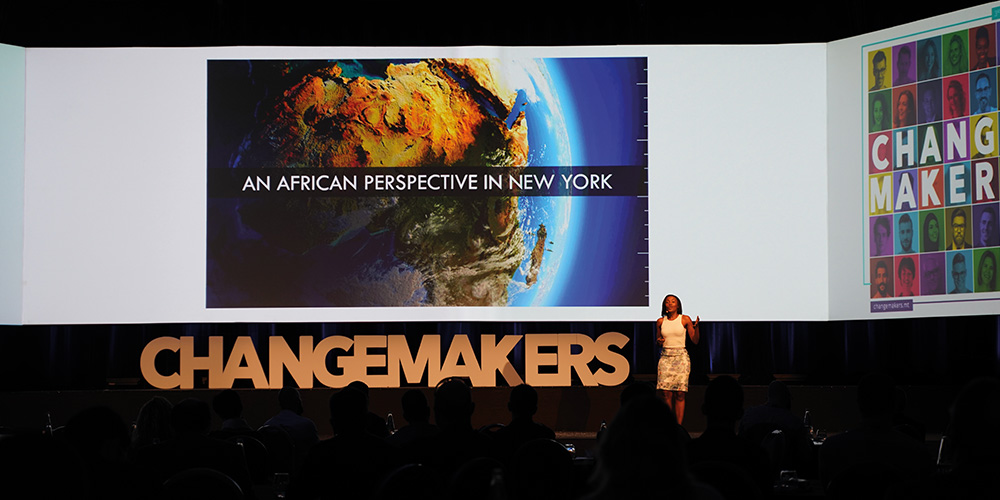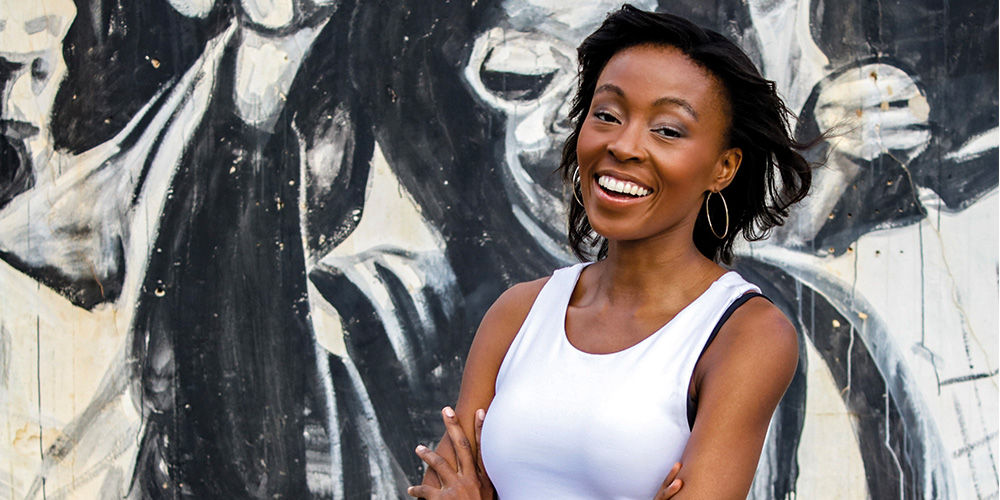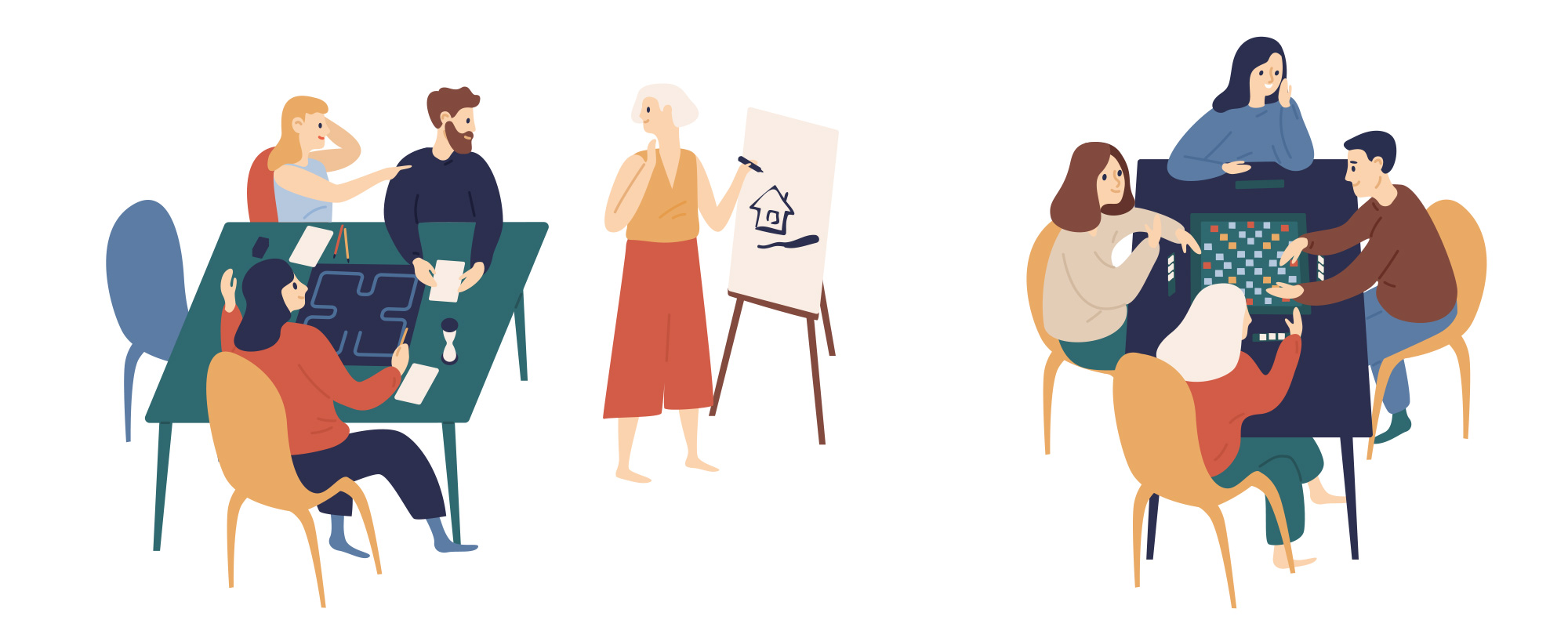South Africa-based entrepreneur Rapelang Rabana says that when it comes to innovation, the skills and experiences we accumulate over our lifetime are better resources than formal qualifications. Words by Daiva Repeckaite.
‘Everything around you that you call life was made up by people who were no smarter than you,’ African innovator Rapelang Rabana told her audience in Malta, quoting Steve Jobs. ‘When you choose [not to] accept an assumption that is no longer serving your best interests, it is those moments that are a true source of innovation.’ Her words hit a chord as the coronavirus pandemic ripples worldwide and society grapples with the pressures of online learning, the quest for tools to stay productive, and the need to better distribute resources.
In October 2019, Rabana gave a keynote speech at the Malta Innovation Summit. She emphasised the unique position African entrepreneurs are in, as their creativity is uninhibited by legacy technologies. ‘[When Skype came along,] we didn’t have personal laptops with high-speed bandwidth,’ she explains, showing how African businesses were mobile-first.
Lead with ideas
In her speeches around the world, Rabana generously praises innovators from around Africa. At a South African startup competition, she had once assessed a crime alert system developed for disadvantaged townships. ‘You can’t rely on alarm systems, because the police or security guards will take a long time. Essentially it’s a community-based crime alert system, where they’ve got devices that can make a loud noise and alert community members when things happen.’

Other innovators came up with an app she compares to ‘Uber for domestic workers’. It helped thousands reshape their participation in the informal economy. Millions of women work in people’s homes as nannies, chefs, or gardeners. The app professionalised the whole service, as it logs their hours and protects the rate set, she explains. In her opinion, the information gathered could also help governments target subsidies to reach informal workers: ‘There is no transparency as to what they’re doing or how far they travel, and I imagine that once the data build up and become more readily available, governments will be in a different position […] to subsidise [their] transport.’
Rabana built her own business after graduation. She decided to sell this business rather than be drawn into the telecom wars, she told Quartz. Rather than power games, she says she was drawn to follow her curiosity and come up with new solutions. ‘It doesn’t depend on the degrees you have; it’s going to come down to your capacity to tap into your internal wisdom, your curiosity, to build this value,’ she told the Innovation Summit. She quoted Paul Graham, ‘Ideas are usually a result of an external stimulus hitting a prepared mind.’
Everything around you that you call life was made up by people who were no smarter than you.
Honoured among the 15 Women Changing the World in 2015 by the World Economic Forum and then as the same forum’s Young Global Leader two years later, she is known as the founder and chair of Rekindle Learning – a microlearning app designed to transform static learning material like textbooks, training manuals, and slides into interactive learning materials with videos and questions. Ventures Africa described the product as ‘a GPS-like tool that helps individuals without experience navigate through organisational processes and rules.’
The Rekindle concept germinated during her school years. ‘I went to very good schools, but even [so], I was very frustrated. When you write a test, you get feedback, and you promise yourself that you will revise before the next exam, but you never do. It was too hard to track the stuff that you were struggling with. I was thinking, surely there must be a method to help us track the things we are struggling with, so that we know where to focus. And yet, there wasn’t,’ she remembers. ‘So you keep getting better at the things you’re good at, and worse at the things you’re bad at.’
Mentoring children in townships of Johannesburg brought Rabana back to her own school memories. Yet for these children the only feedback they would get from school was a mark. ‘That means they don’t have an opportunity to self-correct,’ she realised. Rekindle can remind students about their wrong answers and drill the question until they get it right. Where there is a huge need, innovation has great potential.
From classrooms to corporations
Although Rekindle has persevered in its educational mission for diverse schooling and is used for English fluency, Rekindle Learning’s main target is other businesses. What emerged from classrooms evolved into a product that companies use to train staff.
‘We work a lot with companies. They use the app in sales and customer service, even in regulation compliance services, especially in banking,’ explains Rabana. There are a lot of regulations that staff have to comply with. It’s boring – you tell them to read 400-page manuals. They say that they read it, but nobody has the patience to read those things,’ she told THINK. Her app instead allows workers to build their knowledge in 10-15 minute daily sessions by answering questions. Users can set the time frame when they are available to focus on learning. ‘It keeps asking you questions until you show that you got it right on more than one occasion,’ the founder says.

Even after global recognition, selling the service to large enterprises is no walk in the park. Rabana says that it took three years to convince some of them. ‘Corporations don’t usually trust startups, especially run by black women,’ she observes. In some settings, the word goes that certain corporate representatives will not close a deal with a woman. ‘I try to have diverse people in the room, because I don’t know who has prejudice and who hasn’t,’ Rabana admits, but over time she has become more selective of her clients, and developed strategies to deal with prejudiced teams: ‘I identify the real changemakers in the company and ally with them.’
Overcoming this barrier does not guarantee product take-up. ‘Companies always say that people are their greatest asset, and you would expect them to invest in their performance. But I was really disappointed to see that for many companies training is just a tick-box exercise. They are not really trying to improve the performance of their staff. They are happy to just say that they attended a two-day workshop, and they don’t care that people walked away without remembering anything. It’s really disheartening that people can tolerate inefficient learning outcomes just because they’ve ticked the box that they’d sent people for training.’
It doesn’t depend on the degrees you have; it’s going to come down to your capacity to tap into your internal wisdom.
Rabana is now creating an innovation infrastructure that wouldn’t be held back by the hurdles she faced. Speaking after the Malta Innovation Summit, she shared that she wants to set up an investment platform for startups. In the meantime, she keenly observes her environment. From discussions with Maltese counterparts, she picked up the idea of two types of values: mercantile and guardian. ‘The mercantile mindset is made up of traders, the people who went around and met new people all the time; the guardian mindset is more aligned with religion, the military, and systems. [These colleagues] thought that Malta was still in the guardian mindset. That was an interesting insight,’ she shares.
She spots a problem: too many people cannot see past the circumstances they are in. Innovation needs infrastructure. But above everything, it needs people who play the game by drafting their own rules.





Comments are closed for this article!